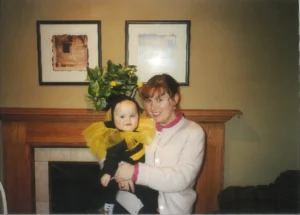In one of the most difficult periods of her life, Gwen Walz, the wife of Democratic vice presidential candidate Tim Walz, could not share her feelings with even her family and friends. She had experienced confidentiality concerns, and she can hardly express her deepest feelings to her highly beloved people. For many people, the way to building their families is full of emotions they cannot describe, such that Gwen experiences isolation thinking about those times. They went through one of the hardest tests she has ever had, and she had to rely on herself to pass through it. “Our fertility journey was an incredibly personal and challenging experience… at the time, we kept the most of it to ourselves like so many who have faced these challenges”. She can hardly remember a friendly neighbor who used to come to her and assist her in learning about fertility. She had to use shots in groups for the IUI (Intrauterine insemination) process, and she had to use them before leaving her teaching career. The neighbor, a nurse, would be under her before leaving, and they would move together such that she would use the shots before leaving. That friend is the only person who is still assisting Gwen in this hardest phase of dealing with these challenges.
IUI is an artificial fertilization procedure, where sperm is placed directly in the uterus to enhance the chances of getting pregnant. While it is considered to be less invasive than many other fertility treatments, it can be as emotionally and physically exhausting for families as other options. Gwen Walz and Tim Walz knew it firsthand; they went through IUI within the course of their long way to have a family. The couple got married and in 1994; and in 2001, after years of trying and many treated cycles of implementation, Mr. and Mrs. Walz welcomed their daughter, Hope, their first-born. In 2006 their son, Gus, was born. Gwen recalls: “Like millions of families across the country, Tim, and I know what it feels like, and used, ART (Assisted Reproductive Technology), including IVF (In vitro fertilization) to create and expand our family”. The reason they decided to speak out about “the anxiety, the heartbreak, and the desperation that can erode your spirit” and “we hope that other families might find comfort in our story” is the fact that “Knowing that pain, I can’t comprehend the cruelty of politicians who want to take away the freedom for couples to access the care they need”. The political situation around fertility treatment became a real threat, and Gwen and Tim Walz want to talk about it. They saw “the unprecedented attack on women’s reproductive health care – including infertility and IVF, across the country, most recently with the dangerous ban on fertility treatments in Alabama. This is simply wrong. I lived my fight, and I need to speak out”.
In February 2024, the Alabama Supreme Court ruling declared frozen embryos the legal equivalent of children. A wrongful death lawsuit had been filed by two couples whose IVF embryos were destroyed by mistake at a fertility clinic. The controversial decision led to multiple fertility clinics being immediately shut down throughout the state over the next several weeks. Two others refused to open their doors to patients, citing concerns about legal action. The end came just as soon as it had begun, with the Alabama State Legislature passing a bill to ensure that physicians and fertility centers could no longer be held accountable for destroying embryos. The law didn’t address the broader issue of embryo legal status and fetal personhood that the court ruling had raised. Critics of the ruling argue that even if in-vitro fertilization, IVF, is the legal danger, it will take much of the rest of fertility treatments with it. Labeled the superior option, IVF is more successful than IUI. Out of every 100 cycles, IUI results in pregnancy just ten times per year. Successful fertilization in IUI is reduced by the policy effect of reducing unwanted pregnancies. The most important reason why a ban on these interventions would drastically reduce their supply is that fertility clinics would be shuttered, and possibly IVF clinics would be the first to lose legal details. According to the latest CDC birth rate data, about 2.3% of all infants born in the U.S. each year are conceived using Assisted Reproductive Technology (ART).

To add some context to the legal disputes that take place, a note can be made that the situation also entails a human cost together with the perception of many people who are struggling to conceive and desperately want children. Gwen Walz has recently stood up against Donald Trump and his running mate JD Vance during a Democratic fundraising call by claiming that “If Trump had his way, I would have never become a mom”. She also mocked Vance concerning his earlier “childless cat lady” comments in which case “If Vance had his way, and it didn’t give me children either, well, that too would make me a second-class citizen”. ‘And frankly, that’s not the future I want for my children, or yours, or for any children” she shared. “The ability to make choices about family planning should not be dictated by the political winds of the moment”. Governor Tim Walz is also concerned and claims, “The decision of when and if to start a family is one of our most basic freedoms in this country”. “Attacking the ability for families even to have children exposes Republicans’ true intentions”. “Shows just how far they’re willing to go to limit reproductive freedom. This should alarm every single person in this country — regardless of political affiliation”. Gwen Walz confesses “I’ve been deeply moved by the women who have shared their stories with me”. She would likely go through this journey in terms of emotional tensions and pain in private, like she did with some of the other people, if it was not to such an extent caused by the political climate and fertility treatment accessibilities. At the moment, “Many of our closest family and friends were surprised when we shared these experiences so many years later”.


